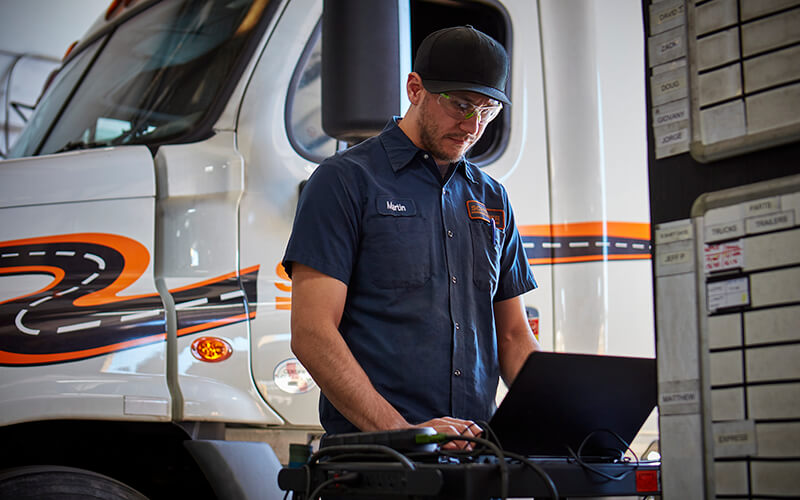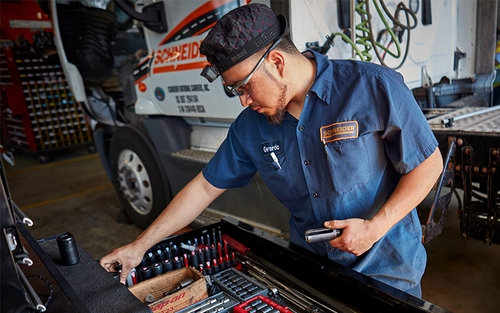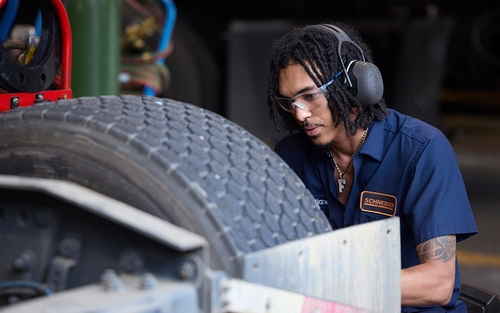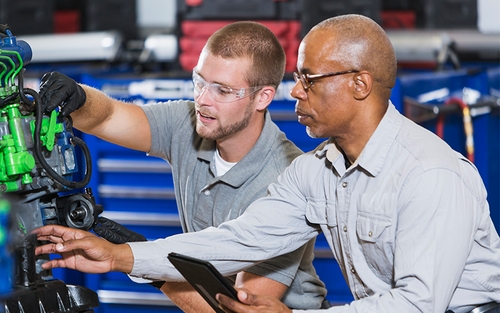Estimated reading time: 2 minutes
In the diesel industry, people often consider the terms ‘diesel mechanic’ and ‘diesel technician’ to mean the same thing. But many debate if there is a distinction between the two.
Let’s look at the arguments so you can make your own decision.
Diesel mechanic vs diesel technician definition
There are two main thoughts on what makes someone a diesel technician versus a diesel mechanic:
- If they focus on the mechanical parts of a diesel engine, they’re a diesel mechanic. If they work on the mechanical and electrical components of a diesel engine, they’re a diesel technician.
Nowadays, semi-trucks use a lot of technology. So, anyone who works on trucks needs to know about both the mechanical and electrical systems. Both titles can be used interchangeably.
The section below explains the differences for those who believe there is a distinction between the two terms.
Diesel mechanic vs. technician job breakdown
1. Responsibilities.
Similarities
Both diesel mechanics and technicians repair and maintain diesel-powered vehicles. Some of their responsibilities include:
- Identifying mechanical issues in diesel engines.
Doing preventative maintenance, like oil changes and tire rotations.
Performing minor and major repairs, such as engine overhauls and component replacements.
Communicating with customers.
Differences
Besides the “hands-on” tasks listed above, diesel technicians also use tech tools, such as computer systems. This helps to identify and diagnose problems within an engine’s electrical systems.
2. Skills
Similarities
Both diesel mechanics and technicians must have a variety of skills to get their job done safely and correctly, including:
- Diagnostic and repair skills.
Hydraulics knowledge.
Tooling knowledge.
Problem-solving skills.
Communication skills.
Differences
The biggest difference between a diesel mechanic and a technician is their technical expertise. While a diesel mechanic has basic computer skills, a diesel technician must have in-depth knowledge of technical programs so they can work on the electrical systems in diesel equipment.
The following are just some of the tasks a diesel technician does that require technical skills:
3. Certifications.
Similarities
Both diesel mechanics and technicians can pursue a variety of professional certifications to advance their careers. These include certifications focused on:
Differences
Since diesel technicians need to know about electrical systems, they can get a special certificate. This certificate is focused on understanding a diesel engine’s electrical and electronic systems.
4. Training and education.
Similarities
Most companies ask for more training after high school for mid- to senior-level positions, whether you want to be a diesel mechanic or a diesel technician. Depending on how you decide to become a diesel professional, your training might include hands-on work experience and basic classes.
It’s important to note some educational institutions use the terms ‘diesel mechanic’ and ‘diesel technician’ interchangeably when describing their diesel programs. Many programs include training on vehicle electronic systems and technology no matter which term they use.






